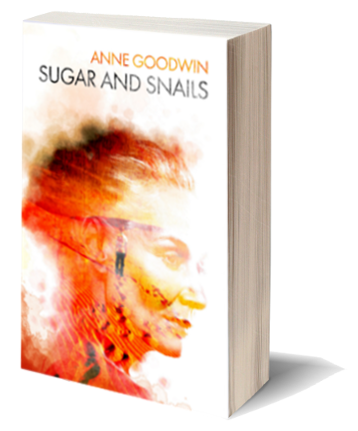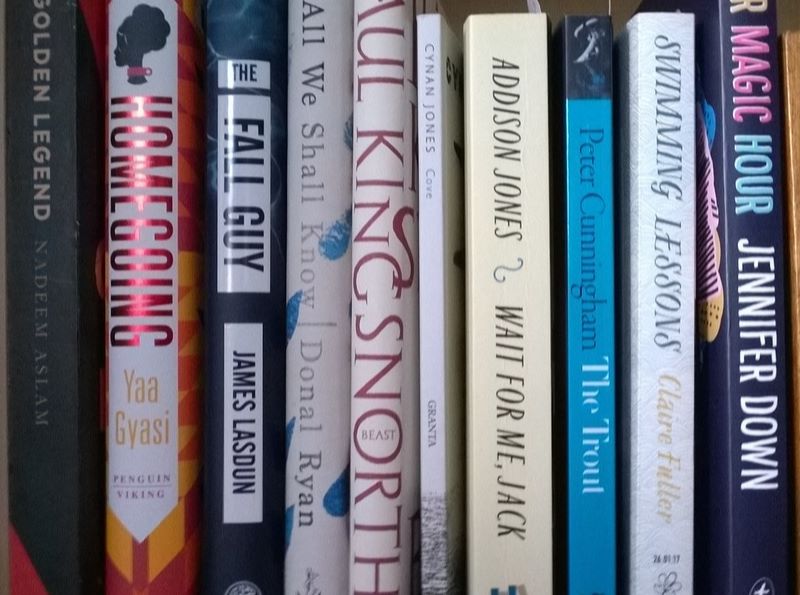| Having written a novel with a secret at the heart, I’ve been touched by the care taken by reviewers to avoid divulging the truth behind my character Diana’s façade. In fact, I’m aware of only one review with a spoiler, and that was posted with my approval on the valid assumption/aspiration it might attract readers interested in the novel’s gender theme. But, even if bloggers were less conscientious, I wasn't worried, as research suggested that spoilers don’t spoil, and might even enhance the reading experience. However, when I blogged about this some time ago, my fellow booklovers didn’t seem convinced. Now that new evidence has come to light, it seems that they were right and I shouldn’t have been so complacent. |
In the first part of the study, student participants were presented with summaries of short stories either with or without a spoiler, and asked how much they’d like to read the full version “right now”. Those who scored low on the trait need for cognition (indicating a preference for not having to think too hard) were more likely to choose to read a spoiled story, probably because spoilers make the narrative easier to understand.
A possible real-world parallel with this experimental procedure might be whether or not we’re tempted by reviews containing spoilers. Uncomfortably for me, given that I consider myself a deep thinker, is that on at least one occasion, I’ve chosen to read a novel after reading a review with a spoiler. It’s worth noting, however, that reviews tend to be longer than the summaries used in this research (mean length = 64 words). A better parallel might be the blurb on the back of the book (shorter than reviews, although generally longer than these summaries – mine for my next novel is almost exactly twice that length). Feedback from reviewers who enjoyed my debut novel suggests the blurb underestimated the complexity and emotional intensity of the story but (assuming they’re not low on need for cognition) these readers might still not prefer a spoiled version.
In the second part of the study, participants were given a short story to read in its entirety, after reading a summary of that story that was either spoiled or unspoiled, and then rated it for enjoyment. In this case, those who scored high on the trait need for affect (a tendency to value emotion in their lives), as well as those who those who reported reading fiction for pleasure more frequently enjoyed the unspoiled stories more than the spoiled.
As an avid reader who looks to mine the depths of emotion in my reading and writing, you might expect me to be disappointed in any spoiled fiction I read. But the (spoiled) novel referred to above was one of my favourite reads of 2014, and I can think of a couple of novels I’d have enjoyed more if the secret hadn’t been saved until the end.
Much of our concern about spoilers in fiction relates to novels, but this research was carried out with short stories – and fairly short short stories, a couple classifiable as flash fiction at under 1000 words – where spoilers might have a different impact. I might enjoy being baffled for 1122 words (the length of the longest short story in this study) but feel alienated and irritated if it dragged on for 100 times that length. But it would be difficult to replicate this study with longer-form fiction which might take days rather than minutes to read.
The experimenters also investigated some other variables that did not yield significant results, but might nevertheless be of interest. The extent of transportation into the story (based on scores on a 15 item scale with items such as “I could picture myself in the scene of the events described in the story”), reminiscent of cognitive poetics which explores how neurologically we connect to a fictional world as if it were real, and very satisfying for an author to find in a review, was unaffected by spoilers. Neither was the personality trait need for closure (comprising comfort or otherwise with predictability and ambiguity, for example “I don’t like situations that are uncertain”), of particular interest to me given some differences between readers in their reactions to the ending of Sugar and Snails.
The authors note that spoiler impact may vary according to the timing and nature of the reveal, and the degree of reader control (such as choosing to skip ahead to the ending before deciding whether it’s worth a read). I think there is potential for exploration of the space between spoiled and unspoiled. In my novel, Sugar and Snails, readers who detect an early hint of the secret prior to the reveal have enjoyed the gradually deepening conviction and the process of discovering whether their suspicions were right.
Thanks to Benjamin Johnson for trusting me with a copy of his paper with Judith Rosenbaum “Who’s Afraid of Spoilers? Need for Cognition, Need for Affect, and Narrative Selection and Enjoyment” and providing the additional information on the length of the stories used in the research. You can find other summaries on his blog, as well as on The Conversation and on Science of Us.
| No spoilers in the 10 reviews I’ve posted this month – although I did come pretty close in one, albeit for good reasons. Click on the image for any you might have missed. |























 RSS Feed
RSS Feed





















